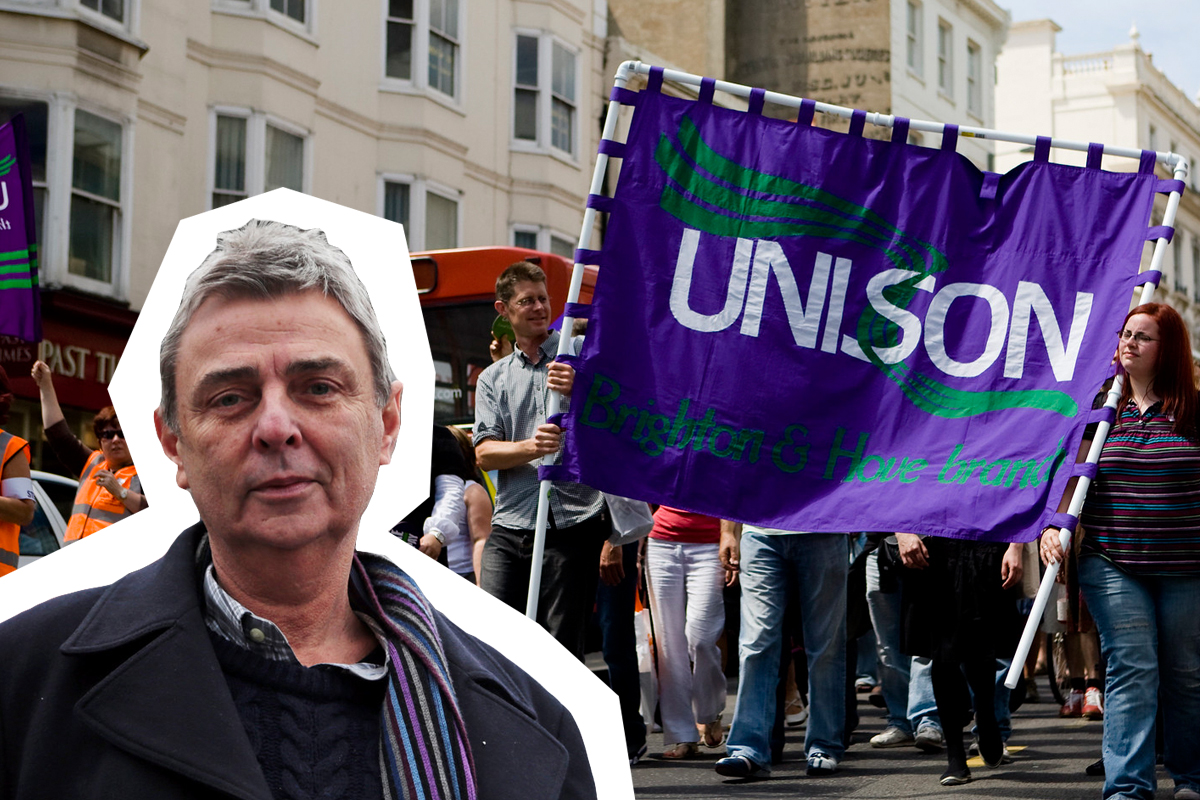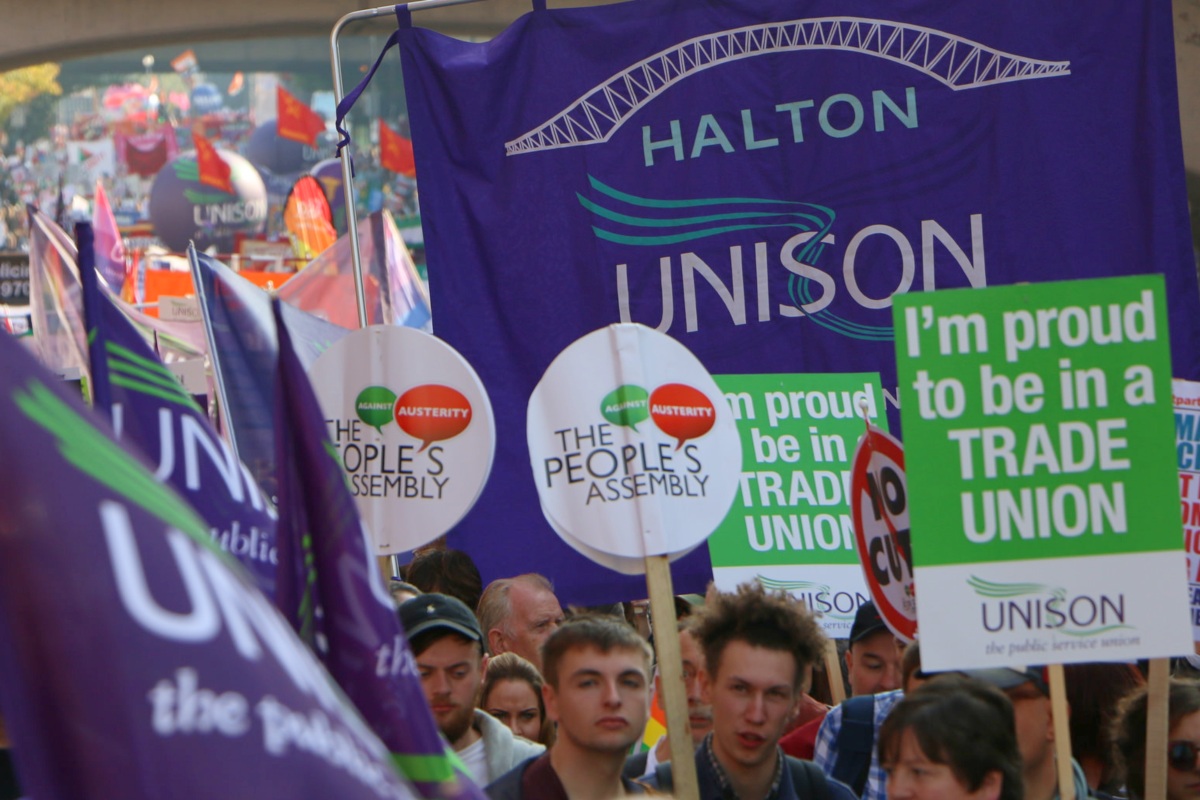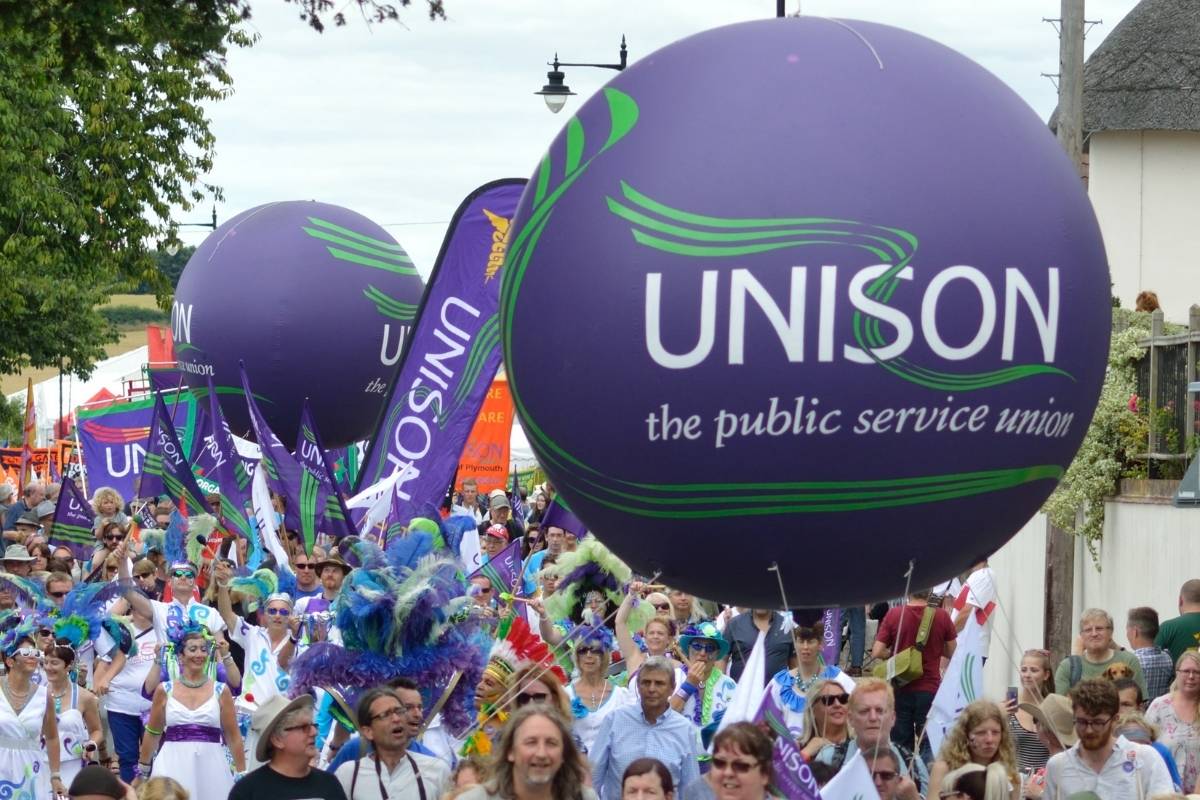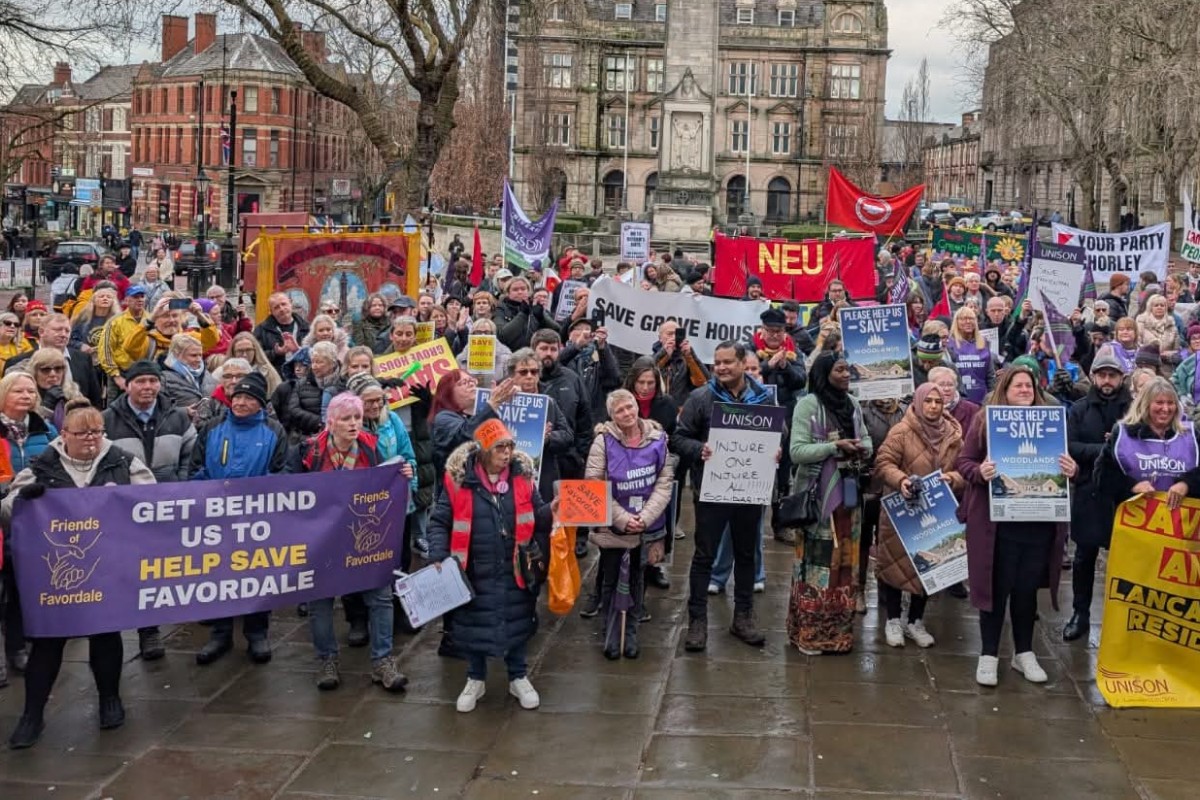Despite being hammered by inflation, Unison has failed to galvanise members in ballots over pay. Left activists must mobilise to win a majority in upcoming union elections, in order to launch a real struggle against the government and employers.
With the cost of living rising, particularly in terms of huge hikes in the price of energy and fuel, trade union members will be forced to challenge attempts by the government and employers to hold the line on pay.
This will especially be the case in the public sector. Reports suggest that even some of the most unlikely trade union officials were calling for coordinated action over pay at the last meeting of the TUC General Council.
Inflation is rising at its fastest rate in three decades. This will disproportionately impact on the lowest paid workers.
Yet despite this, recent indicative pay ballots run by Unison – whilst showing overwhelming support for action amongst those members who voted – have seen poor turnouts overall.
In the Unison local government pay ballot, for example, which ended on 14 January, just over 1-in-7 members voted.
Why is it that, at a time when living standards are under so much pressure, so few people are voting?
Morale

There are a few factors to consider. Firstly, there is the fact that the pay campaign has been dragging on for several months.
This recent ballot was for last year’s claim, not for 2022. The employers had offered just 1.75%, with 2.75% for the lowest paid. Reports suggest that many Unison branches had been lukewarm in their campaigning work.
Meanwhile, there is low morale across local government. Services are stretched, and members report feeling ‘COVID weary’. Years of meagre wage rises (or none at all) mean that there is also a view that the union merely pays lip service to the question of low pay.
This was highlighted in an article from last year by Jon Rogers, a former Unison NEC member. He explained that the actual position of the lowest paid members had in fact worsened in the 20 years that Dave Prentis had been Unison general secretary.
One particularly significant issue is that the pay ballot took place over the Christmas and New Year period. Incredibly, reports suggest that the Unison HQ more or less shut down for four weeks over the festive break.
Combined with the fact that many members are still working from home, and that campaigning in many branches never really took off, it is unlikely that members will have seen a great deal of information from the union. This is hardly what would be expected of a campaigning union in the middle of a major pay ballot.
Warning
The turnout in the ballot represents a warning to the leadership in the Local Government Service Group, and should also be closely analysed by NEC members and activists from local government. Members need to believe that they can win before they will strike over the issue of pay.
The 70.2% vote in favour of action demonstrates the widespread mood of anger amongst workers at the Tories’ attempt to freeze pay. Unless members can be imbued with a sense of confidence, however, then we will be left with the same old problem.
What’s needed is a genuine attempt to mobilise the entire membership to win a decent pay rise
Crisis

There is a real buzz around the trade union movement, following the election of left candidates such as Sharon Graham in Unite and the #TimeForRealChange candidates on the Unison NEC. Workers are beginning to move into action.
Unison members are not exempt from this. The crisis of capitalism gripping society affects all of us. The 2022 pay claim is coming over the horizon very soon.
The #TimeForRealChange manifesto for the 2022 Service Group Executive elections makes the following important points:
“In local government we need a serious, high-profile campaign fighting for the industrial action we need to reclaim the 25% loss in real terms and to reverse the nearly one million jobs lost in the past 12 years.
“Our members need to feel empowered; they need a voice and to know that they can make a difference. We need properly funded services. Many of our members are ‘COVID weary’. The pandemic has revealed the importance of our members’ role in society. They need real change”.
This is a fair summary of the situation. But the question has to be posed: How will the Local Government Service Group Executive (SGE) galvanise our members in 2022?
The current political instability, the weakness of the Tories, and the ongoing pressure on members’ living standards mean that not only is this a battle that we can win – it is a battle that we must win.
Action
The campaign must start now. Unison is uniquely positioned in the public sector. As well as coordinating with other unions, we must ensure our service groups coordinate with each other, instead of acting like fiefdoms.
The left therefore needs to mobilise to win a majority across the union in the upcoming SGE elections – not only on the Local Government Service Group, but also on the Health SGE.
We need a campaign that draws in more and more members, develops new activists, and explains what needs to be done to win.
Implicit in this situation is the possibility of coordinated action by the trade unions against the Tory government, including the potential for a one-day public sector strike.
Unison are perfectly placed to play a huge role in this process – but only if there is a serious change in the way the union approaches organising and strike action.
Bureaucratic shenanigans and obfuscation have been a major feature of the internal life of the union over the past period, hampering efforts by grassroots activists to transform Unison into a fighting union.
Similarly, just over 10 years ago, Unison delivered massive votes in favour of action over pensions, only for the bureaucracy to throw away the momentum at the first opportunity.
At a time when even senior full-time officers are saying that the unions have to work together to combat the cost of living crisis, there is no excuse for lethargy and paying lip service on the question of members’ pay.
2022 has to be the year where Unison delivers. Our members cannot wait any longer.






